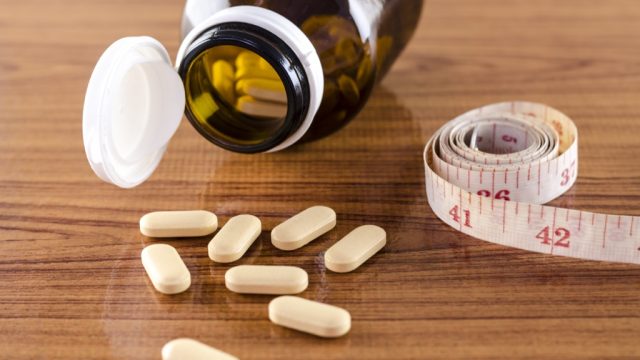Drug Therapy: How Taking Medicine Today Could Save Your Life Tomorrow

Ed Note: This article originally appeared in the Spring/Summer 2004 issue of Best Life.
Paul Hoffman was surfing in some rough water off the coast of Southern California when he felt what he calls the “lung frost” descend again. Hoffman, a 50-year-old professor of philosophy at the University of California at Riverside, had coined this phrase in childhood when a sudden sprint in the winter air made his lungs ache. But a sunny midsummer’s day near Huntington Beach hardly qualified as winter. A ragged wave buffeted him, and the lung frost suddenly spiked so badly, he feared he might not make it back to shore.
Hoffman had started having these chest pains several months before, during an intense aerobic workout. After it happened a second time, he made an appointment with his doctor, who gave him a treadmill stress test. He passed this without a problem. His blood pressure, cholesterol levels, and family history of heart disease were all similarly fine. He’d never smoked and was, in fact, in the best shape of his life.
But in the months following his exam, the frequency and intensity of lung frost episodes escalated. So he saw another doctor, who gave him nitroglycerin tablets. If his pain was caused by heart-related angina, these pills would help open the coronary vessels and temporarily relieve the discomfort. The good news and the bad news: Nitroglycerin worked.
Somehow, Hoffman managed to claw his way back to shore. Lying on the sand, he felt certain this would be his last time in the Pacific. What bothered him even more than intimations of mortality was the thought of physical limitation. He’d just bought his 14-year-old daughter a surfboard and had been looking forward to sharing with her a sport he’d loved his whole life.
The day after his ordeal in the Pacific, Hoffman scheduled another treadmill test, but he failed miserably this time. “Things had deteriorated really significantly in 2 months,” he recalls. The next step was an angiogram, during which his cardiologist injected dye into his arteries to assess the blood flow through his heart. The news here was even worse: His three main coronary arteries were blocked by calcified plaques-99 percent, 80 percent, and 70 percent. Two days later, Hoffman underwent angioplasty to open the arteries. During the procedure, his surgeon introduced a stent in the most severely blocked vessel to help keep it from reclosing.
Hoffman was then put on a smorgasbord of drugs and sent home.
If all this sounds horribly grim to you, the next sentence should change your mind: In all likelihood, Paul Hoffman will never have a fatal heart attack, despite his medical history, because those amazing drugs will protect him. And the drugs that Hoffman now takes cause him virtually no side effects. That same pharmaceutical defense may do likewise for you, even preventing heart disease before it manifests itself in chest pain.
The mainstays here are known in cardiological circles as the ABCs: aspirin, blood-pressure pills, and a cholesterol-lowering statin drug. In addition, Hoffman takes several over-the-counter dietary supplements, including folic acid and B vitamins to lower homocysteine, plus the antibiotic doxycycline to kibosh Chlamydia pneumoniae, a controversial bacterium some researchers believe can infect and inflame blood-vessel walls, expediting plaque formation. Together, these pills reduce his risk of ever suffering a heart attack by upwards of 90 percent.
Hoffman is hardly alone in such a Chinese-menu regimen. “I’ve got almost every one of my patients on many of those same medicines,” explains Robert Bonow, M.D., chief of cardiology at Northwestern University Feinberg School of Medicine in Chicago and the immediate past president of the American Heart Association. Little wonder: The multiple-drug approach has a proven track record of slashing the risk of a heart attack in the most vulnerable.
Consider that a single aspirin a day lowers the likelihood of a heart attack in a high-risk patient population by roughly 30 percent. A beta-blocker and an ACE inhibitor, both blood-pressure drugs, independently reduce the risk by 30 percent. Ditto for statin drugs, which are now thought to safeguard the heart in more ways than by simply lowering cholesterol. Even a fish-oil capsule slashes risk by 25 percent. “What’s great about these,” says Bonow, “is they seem to have an additive effect.” Provided the patient stays with the program, odds are overwhelming that he can avoid a fate that typically doomed the majority of our afflicted forefathers.
But what about guys who don’t have heart disease? Can taking the ABCs prophylactically help healthy men ward off the reaper as well? After all, who among us hasn’t known someone like Hoffman who developed major problems despite having no apparent risk factors?
The idea of taking potent medicines without an absolutely proven need for them is, to be sure, controversial, but it’s an idea that has rapidly been gaining currency in public-health circles. Last June, two researchers made headlines worldwide by proposing in the prestigious British Medical Journal a theoretical “polypill” that they claim could reduce cardiovascular risk by a projected 80 percent in the population at large. This polypill would contain aspirin, a statin drug, three blood-pressure drugs at half dose, and folic acid.
“What is unique to their proposal is that they recommend everyone over 55 years, plus anyone under that age who has arterial disease, take this pill, and that risk factors no longer be measured,” says David Klurfeld, Ph.D., a professor in the Department of Nutrition and Food Science at Wayne State University in Detroit. “Their idea: Treat everyone, and save money by not screening to find out who is at risk. This recommendation takes the public-health approach to its extreme, but logical, conclusion.”
In an accompanying editorial, a British Medical Journal editor suggested that the polypill might represent a putative cure for most heart disease—possibly the first time in history that such a phrase has appeared in such a reputable journal.
Even doctors who follow a more conservative line suggest that the ingredients in the polypill are indeed revolutionizing the field of cardiology. “A lot of people are now saying that we can wipe heart disease out,” says Jonathan Sackner Bernstein, M.D., a cardiologist and the author of Before It Happens to You: A Breakthrough Program for Reversing or Preventing Heart Disease. “There’s only one problem with saying that: It’s not true. What we can do is take heart attacks or strokes that are about to hit us in midlife and postpone them for at least 15 to 20 years. The notion of people having heart attacks in their 50s and 60s should go by the wayside. Heart disease should become a disease of the elderly.”

Drugs Or Dieting?
To longtime advocates of a healthier diet and more exercise, the new emphasis on better living through chemistry sounds like blasphemy. “Dean Ornish wrote an editorial accusing the American medical community of losing its soul because we were telling people to reach for statins instead of changing their unhealthy lifestyle,” says Peter Salgo, M.D., associate director of open-heart intensive care at New York-Presbyterian Hospital in New York City. “But we’re not telling people to use drugs instead of changing their lifestyle—we’re asking them to do both. I get very passionate on this subject. To suggest that we withhold lifesaving drugs from people because we don’t like their lifestyle is unconscionable.”
In his own book, The Heart of the Matter: The Three Key Breakthroughs to Preventing Heart Attacks, Salgo joins a growing chorus of physicians reevaluating the practicality of the lifestyle fix. Although regular exercise and an optimal diet can help some of us improve our heart health significantly, the truth of the matter is that most of us can’t or won’t sustain these changes over the long term.
“It’s basically a myth to think that pushing lifestyle is going to have much impact,” agrees Bernstein. “When I tell patients that they have to change their lifestyle, all I do is make them feel bad and guilty. Instead what I focus on more strongly is that if you’re a typical American in your 40s or 50s, with typical values on your blood pressure and cholesterol, you can cut your risk at least in half by taking a couple of pills. Once the blood pressure and cholesterol are optimal, people feel in control and then are able to address lifestyle issues.”
But can swallowing a just-in-case pharmaceutical insurance policy hurt healthy people? According to Bernstein and Salgo, the answer for the vast majority is no. “In my book,” says Bernstein, “I compare aspirin, blood-pressure medications, and statins with regular vitamins. The safety data here are convincing: These drugs are safer than vitamins.”
Ironically, many experts agree that the single riskiest of the ABCs is the only one you don’t need a prescription for: aspirin. The reason is that aspirin can sometimes trigger bleeding in the stomach or, more ominously, in the brain, leading to a rare but fatal hemorrhagic stroke.
But prevention proponents counter that the risk associated with aspirin can be slashed by having patients take an enteric-coated 81-mg “baby aspirin” daily instead of the standard 300-mg tablet. “I think almost all males over the age of 40 should be on aspirin therapy unless they’re allergic to aspirin or have a bleeding problem,” says Matthew J. Budoff, M.D., program director in cardiology at Harbor-UCLA Medical Center in Torrance, California.

Is Drug Therapy For You?
Risk-factor analysis for heart disease has long been an imperfect science at best. But two landmark papers in the Journal of the American Medical Association make a persuasive case that 80 to 90 percent of patients who suffer clinically significant coronary heart disease—and more than 95 percent who die of it—have at least one of the traditional risk factors: diabetes, a smoking habit, high blood pressure, or high cholesterol. Fortunately, blood tests are relatively cheap and easy to do. Once you know your results, you or your doctor can enter your numbers, along with your gender and age, into the National Cholesterol Education Program’s 10-year risk calculator.
This calculator will crank out the average percentage of people in your same boat likely to have a heart attack in the next 10 years. Many cardiologists are reluctant to recommend aggressive drug treatment unless this figure is 10 percent or higher. But a growing number of practitioners, including Bernstein, disagree.
“Let me give you an example,” Bernstein says. “I saw a 48-year-old man in my office who had borderline high blood pressure and cholesterol. His risk of having a heart attack or dying of a heart attack in the next year was 1 in 167. The lifetime risk of dying in a car accident is 1 in 5,000-but we still use seat belts and air bags because we don’t want to die in a crash. Even so, the medical guidelines would tell me I should not treat him, that his risk of heart disease was too low.”
After Bernstein discussed the matter with his patient, the two decided to ignore the guidelines, and the man started on aspirin, a low-dose ACE inhibitor, and a statin. When he returned later with healthy blood pressure and cholesterol levels, Bernstein recalculated his heart-attack risk: It had dropped to 1 in 1,000, a reduction of 80 percent. “That’s the kind of thing the polypill guys are talking about that you see in a typical person,” he says.
Although more-conservative doctors such as Bonow caution about overtreating the “worried well,” he concedes that a frank discussion with your doctor is critical. “The problem with this one-size-fits-all approach is that some people would be undertreated and would not achieve the appropriate degree of blood-pressure or cholesterol lowering,” says Bonow. “Others who are at very low risk would have a higher likelihood of drug-related side effects. I really think the key is to talk to your doctor about what you, as an individual, need.”
If it turns out that you would indeed benefit from the polypill approach, its various components can be titrated precisely to the doses optimal for your situation.

A Swell Ending
Sixteen months after his successful angioplasty, having remained faithfully on the new pill regimen, Paul Hoffman was back in the surf off San Clemente.
“It was the day before Christmas,” he recalls, “and I always have a surfing outing once I get my presents wrapped. My doctor had given me another treadmill test, and my heart function was fine-which was a huge confidence builder.”
On that sunny afternoon, Hoffman paddled 75 yards out into the swells and patiently waited for the perfect wave. When it came, he caught it, riding parallel with the beach for 150 yards-the longest, most exhilarating ride of his life.
To discover more amazing secrets about living your best life, click here to sign up for our FREE daily newsletter!